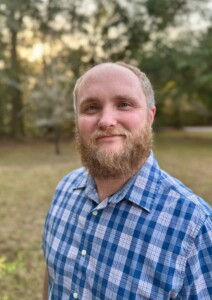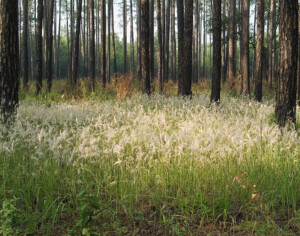Defenders of Georgia’s Healthy Forests
By: Michael Torbett, GFC Forest Health Coordinator
The world we live in today is undeniably a busy place. With a growing economy and advances in technology, people travel the globe more now than at any other time in human history. In addition, global commerce is busier than ever with goods being shipped all over the world.
With all this travel, plants, animals, and insects are constantly on the move from one country to another – sometimes unknowingly. When an insect or plant is taken from its native country and relocated to a non-native country, it can become an invasive species and wreak havoc on the forested ecosystems of the new country. This is because in many cases the invasive species does not have any natural predators in the new location. This can allow it to grow in population and spread rapidly. When this happens, the invasive can out-compete with native species in a region. Furthermore, some invasive insects will aggressively feed on native trees and transport pathogens that those natives are not accustomed to. In turn, massive amounts of mortality can occur. This is why it’s important to regulate, monitor, and eradicate invasive species whenever possible.
At the Georgia Forestry Commission, the Forest Health Program is responsible for monitoring and eradicating forest-related invasive species throughout the state. We work with private landowners, universities, businesses, and other government agencies to identify forest pests and come up with solutions for managing them. We also offer outreach services to provide education. Employees of the Forest Health Program frequently give presentations at many different events around the state. Some of these include landowner associations, logger associations, conferences, schools, and many other outdoor events.
 Cost-share assistance is available to landowners who want to treat and eradicate invasive plants on their property. The Forestry Commission also offers free treatments to anyone with a cogongrass infestation. In fact, since the early 2000s, the Georgia Forestry Commission has been running an aggressive campaign to eradicate every known cogongrass spot in Georgia. Thanks to this program, Georgia only has 492 acres of known cogongrass locations in the entire state, most of which are now negative for the grass, thanks to eradication efforts.
Cost-share assistance is available to landowners who want to treat and eradicate invasive plants on their property. The Forestry Commission also offers free treatments to anyone with a cogongrass infestation. In fact, since the early 2000s, the Georgia Forestry Commission has been running an aggressive campaign to eradicate every known cogongrass spot in Georgia. Thanks to this program, Georgia only has 492 acres of known cogongrass locations in the entire state, most of which are now negative for the grass, thanks to eradication efforts.
Every year, Forest Health Specialists set out traps around ports of entry all around Georgia. This is known as our Early Detection Rapid Response program that looks for new invasive species entering our country. Forest Health also has programs that assist with the research and monitoring for Emerald Ash Borer, Hemlock Wooley Adelgid, Laurel Wilt Disease, Thousand Cankers Disease, Sudden Oak Death, and many others. To learn more about forest health and the conditions that can affect it, visit GFC Forest Health.
